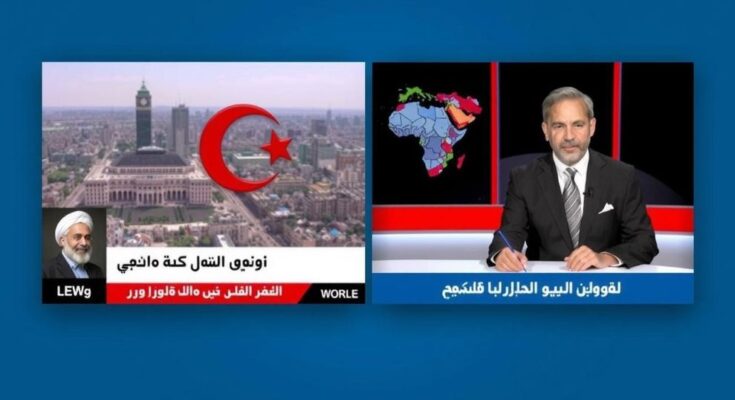Turkey’s TRT has launched a Persian-language service, TRT Farsi, expanding its international media outreach amid strained relations with Iran. The channel aims to challenge Western-centric media narratives and strengthen cultural ties between Turks and Persian speakers. Key figures, including TRT’s directors and Turkey’s Foreign Minister, have emphasized the significance of this move while navigating contentious political statements regarding Iran.
On December 18, Turkey’s state television channel TRT revealed the launch of its Persian-language service, TRT Farsi. This event marks a significant step for TRT in expanding its international presence amid strained diplomatic relations with Iran. TRT Farsi aims to join other Persian channels, such as Iran International and BBC Persian, targeting a global audience of over 130 million Persian speakers. Fahrettin Altun, head of Turkey’s Presidential Communications Directorate, emphasized that publishing content in Persian constitutes a “valuable service to humanity,” while also highlighting cultural connections between Iran and Turkey backed by historical references.
TRT Director General Mehmet Zahid Sobaci asserted that the new service endeavors to counter Western media’s prevailing influence, asserting that “international media was dominated by a one-sided, Western-centric view.” He drew parallels between regional conflicts, suggesting that intensifying oppression fosters a demand for justice. The timing of TRT Farsi’s launch coincides with notable shifts in Syria and associated tensions in Tehran-Ankara relations following the Assad regime’s instability.
Despite its intentions, the TRT Farsi launch has not been without controversy. Early comments from Sobaci, who referred to the channel’s purpose as meant to “disturb Iran,” elicited criticism from within Iran and among Turkish analysts. However, at the launch ceremony, Sobaci adopted a more diplomatic tone, asserting that with a focus on the Persian language and shared cultural heritage, the service seeks to cultivate greater connections between the Turkish and Persian-speaking communities.
Political conversations have further complicated the initiative, particularly remarks made by Turkish Foreign Minister Hakan Fidan about Iran needing to “learn lessons” from developments in Syria. Such statements have been met with strong rebuke from Iranian state media, which characterized them as “exaggerated” and “sarcastic.” Ultimately, TRT has reported extensive reach and engagement with its existing language services, boasting over 11 billion views along with a substantial digital following, affirming its media presence across a diverse array of languages.
The development of TRT Farsi comes against a backdrop of historical and cultural ties between Turkey and Iran, despite contemporary political challenges that have strained relations. Media has played a significant role in shaping narratives and public perception in this tumultuous region. The launch aligns with Turkey’s efforts to enhance its influence through media channels, providing an alternative to the Western-centric narratives that have long dominated international discourse. The expansion of TRT’s language services symbolizes a strategic move to cater to diverse audiences while countering narratives from rival media outlets.
The launch of TRT Farsi signifies Turkey’s strategic effort to expand its media reach while navigating the complexities of regional tensions with Iran. By presenting an alternative to Western-dominated narratives, the service aims to foster connections between Turkish and Persian speakers, although it enters a highly sensitive political landscape. The initiative reflects both cultural ties and the ongoing dynamics of power, influence, and media representation in the Middle East.
Original Source: www.intellinews.com




